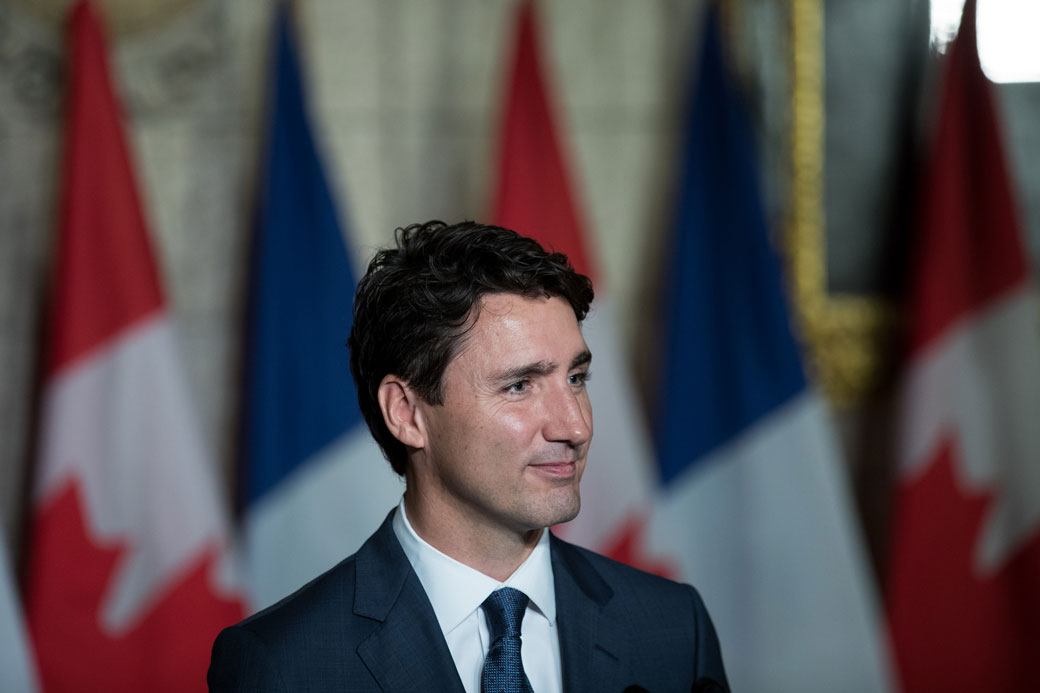Despite an intervention by European Parliament President Martin Schulz, Walloon’s Minister-President Paul Magnette is holding firm on his refusal to agree to the Canada-European Union Comprehensive Economic and Trade Agreement (CETA) signing ceremony on Thursday.
“I think it’s worth taking a little more time,” Magnette said. The government of Wallonia region, a region that includes 3.5 million people in Belgium, is blocking the massive trade deal in hopes to get more time.
The European Union has reportedly given Belgium until late Monday to overcome opposition to the trade deal, saying if there is no resolution by that date it will cancel the scheduled summit for Thursday.
Walloon parliament president Andre Antoine said that an end-of-year deadline would be more reasonable and that an agreement was not possible Monday, Reuters reported.
Canadian trade minister Chrystia Freeland was in Brussels last weekend to meet with Schulz, but has now returned to Canada saying that she hopes to be back in Brussels with Trudeau on Thursday for the signing of CETA. But that seems unlikely given the depth of Wallonia’s concerns about the deal.
“Politicians in Wallonia argue the proposed deal would undermine labour, environment and consumer standards and allow multinationals to crush local companies,” The Associated Press reported.
BNN reported, “Walloons have concerns about the threat of surging pork and beef imports from Canada and an independent court system to settle disputes between states and foreign investors, which critics fear hands power to multinationals. Once the core of the Belgian economy, Wallonia has seen coalmines shut and steel jobs disappear and distrusts globalization. Just last month, Caterpillar announced plans to close a plant there, cutting some 2,000 jobs.”
David Kleimann, a researcher at the European University Institute, has told the CBC that the fate of Wallonia’s vocal and powerful farmers has been central to the region’s trade objections.
“The Walloons are having trouble [understanding] the investment protection provisions of the treaty, as well as the validity [of the] EU ban [on] hormone-treated beef,” Kleimann said.
And from Belgium, Council of Canadians trade campaigner Sujata Dey tells us that beyond these issues, Wallonia is also concerned about the deal’s negative list on services, meaning it applies to every service unless otherwise stated thus raising concerns about privatization and the ability to remunicipalize a public service.
They are also concerned about the lack of protection from a flood of dairy imports, the lack of Belgian geographic indicators (that protect products that are deeply rooted in tradition, culture and geography), and they say that the side declaration to the deal that was intended to assuage concerns is not legally binding.
The Council of Canadians celebrates European opposition to CETA.
We have been highlighting that not only does Wallonia have the constitutional right to refuse to agree to CETA, but also that more than 3.5 million Europeans have signed a petition against CETA, that 320,000 people marched against CETA in cities across Germany last month, that 88 per cent of Austrians oppose CETA because it shifts power to transnational corporations, that 81 per cent of people in France said they believed CETA would undermine French standards protecting health, food quality, the environment and the climate, and that several other EU member state governments have concerns about CETA but were unwilling to block the deal.
“There is no way to meet the demands of the millions in Europe opposed to CETA without opening the deal itself. Wallonia’s courageous stand will send our governments back to the drawing board, hopefully to think about a very different kind of trade agreement based on the values of sustainability and justice,” said Council of Canadians chairperson Maude Barlow.
The Council of Canadians is calling on Trudeau and Freeland to agree to postpone Thursday’s signing ceremony and to a substantive renegotiation of the pact.
Like this article? Please chip in to keep stories like these coming.
Image: PMO/Adam Scotti




